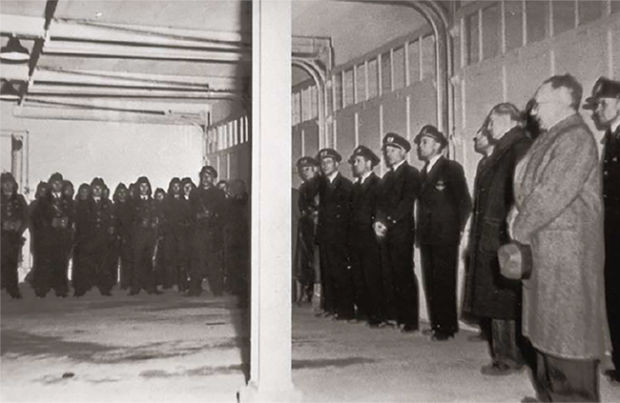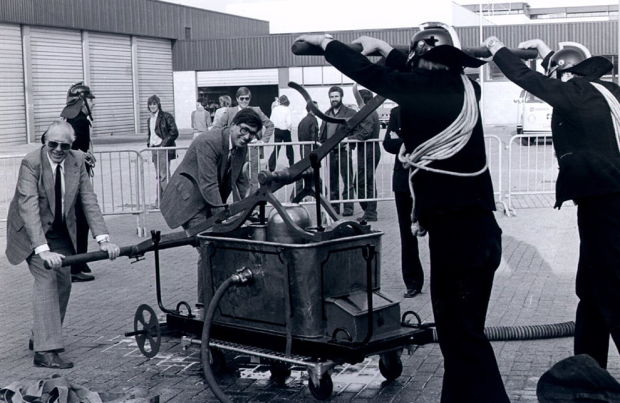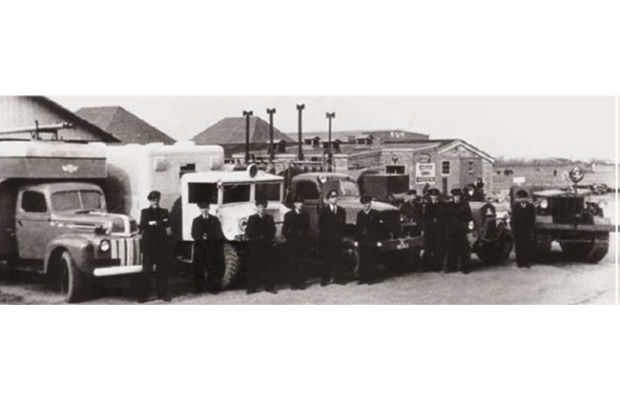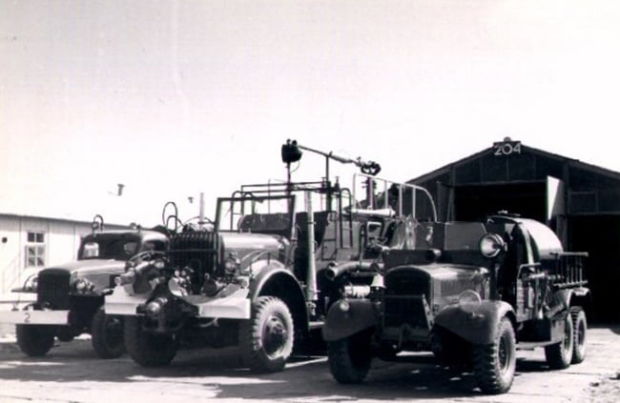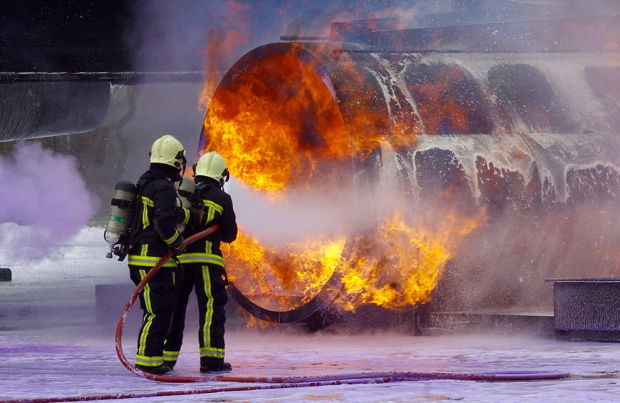75 years of the Schiphol Fire Brigade
The Schiphol Fire Brigade is celebrating its 75th anniversary. Where firefighting at our airport once involved little more than a sandpit and a few hand pumps, today a professional organisation is on hand 24/7 to keep Schiphol safe. This is a firefighting corps we are very proud of.
Fire and accident response in the early days of Schiphol was not yet carried out according to today's standards. In the event of an incident, municipality and KLM employees would drop their regular work duties and provide the requested assistance using nothing more than some hand pumps, hacksaws and sand. And even though arrangements are made in the 1920s for support from Amsterdam and Haarlemmermeer, assistance during calamities remains part of the duties of airport personnel for years to come.
Mandatory own corps
This came to an end in 1944 when the Netherlands signed the International Civil Aviation Treaty. This made the formation of its own fire brigade compulsory. On 1 February 1949, the Order & Safety corps officially saw the light of day and the Schiphol Fire Brigade was founded. The seventy members of the brand-new corps remained responsible for police duties at the airport in addition to firefighting until the 1960s. To this end, they had four vehicles and one barracks at their disposal, located under the old control tower at what is now Schiphol-East.
New fire stations
After the war, the world is ready to fly again and Schiphol makes the necessary preparations. New runways are built, the airport moves to Schiphol-Centre, and jets and later jumbo jets make their appearance. As Schiphol continues to expand, not every runway can be reached on time. That is why new fire stations are established at strategic locations: Rijk in 1960, Sloten in 1981 and - after the construction of the Polderbaan - Vijfhuizen in 2003. When the barracks at Schiphol-Centre had to make way for the current head office, the Sloten station was given the function of main guard.
State-of-the-art crash tenders
Equipment also continues to change with the times. After the war, hand pumps are traded in for British and American fire engines. But aviation continues to develop and there is a continuous need for newer, more professional equipment. A stream of increasingly sophisticated vehicles and equipment follows over the years. The most recent step is the purchase in 2020 of thirteen state-of-the-art crash tenders, each carrying 13,300 litres of firefighting water, 1,600 litres of foam and over 250 kilograms of powder.
In practice
Keeping an international airport safe requires well-trained individuals. That's why the training of fire personnel is also being increasingly professionalised, with the construction of practice aircraft Firefly as the ultimate example. And that training is also put into practice of course. Usually during small incidents that have a limited impact, but very occasionally there are incidents that attract worldwide attention. These include the Bijlmer disaster in 1992, the fire at the Schiphol-East detention centre in 2005 and the Turkish Airlines disaster in 2009.
A corps to be proud of
Fortunately, things have moved on significantly from those early days. The Schiphol Fire Brigade is a professional organisation that now has 190 firefighters. They are on standby 24/7 to keep Schiphol fire safe. It's a corps to be proud of!
Would you like to know about the activities of the Schiphol Fire Brigade?
Read the previous blogs
-
A day in the life of... a mortuary coordinator
Published on:Did you know that there is a mortuary at Schiphol? In this blog, mortuary coordinator Ben Vos tells us all about the important work he and his colleagues do.

-
New electric buses for P3 Long Term Parking
Published on:Parking for a long period at Schiphol? The free shuttle bus takes you from P3 to the terminal in just 5 minutes. What's more the buses are all electric!

-
Where will you fly to in 2025?
Published on:Will we see you at Schiphol soon to discover new places? Because in 2025 several new destinations will be added to our network.

